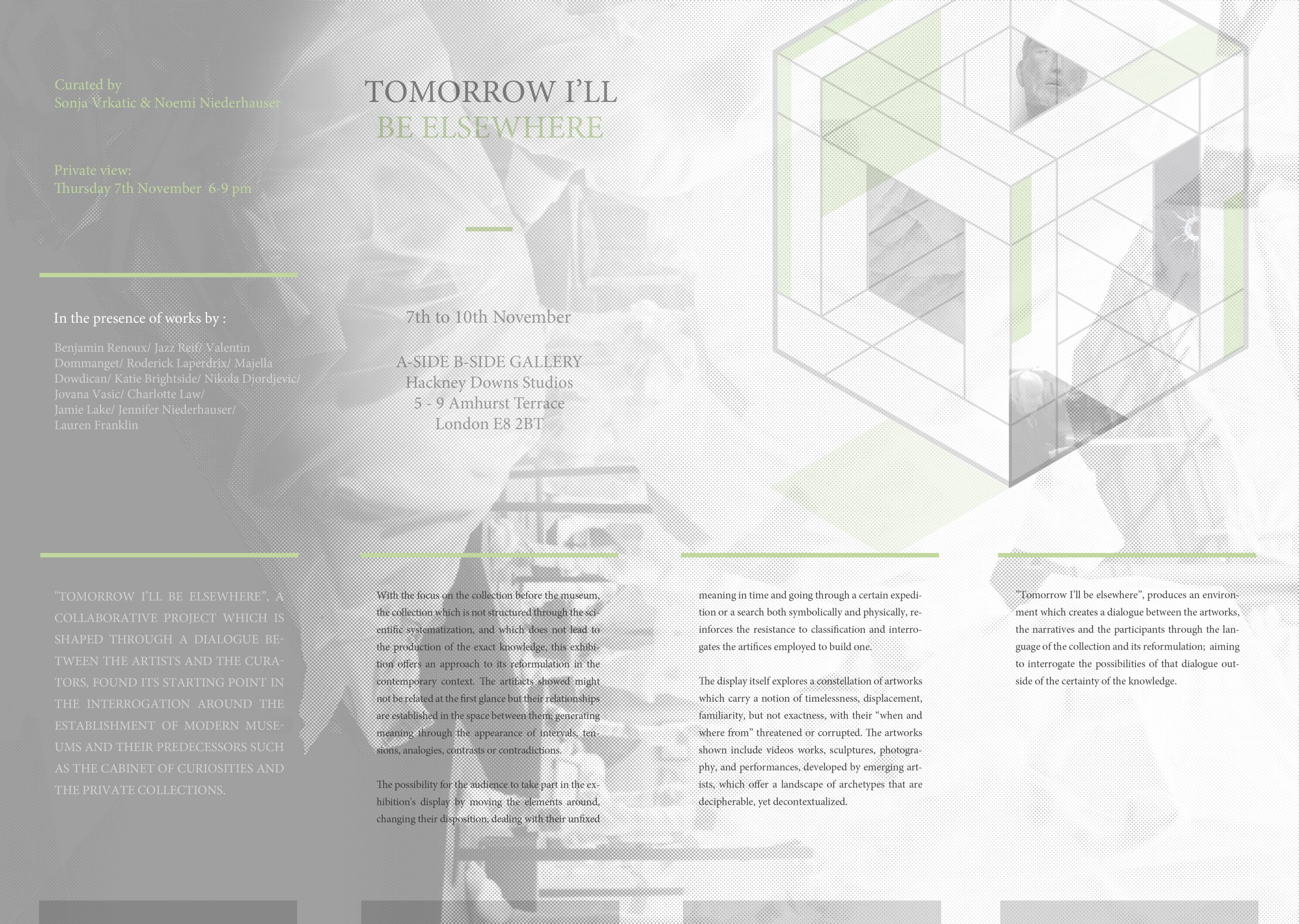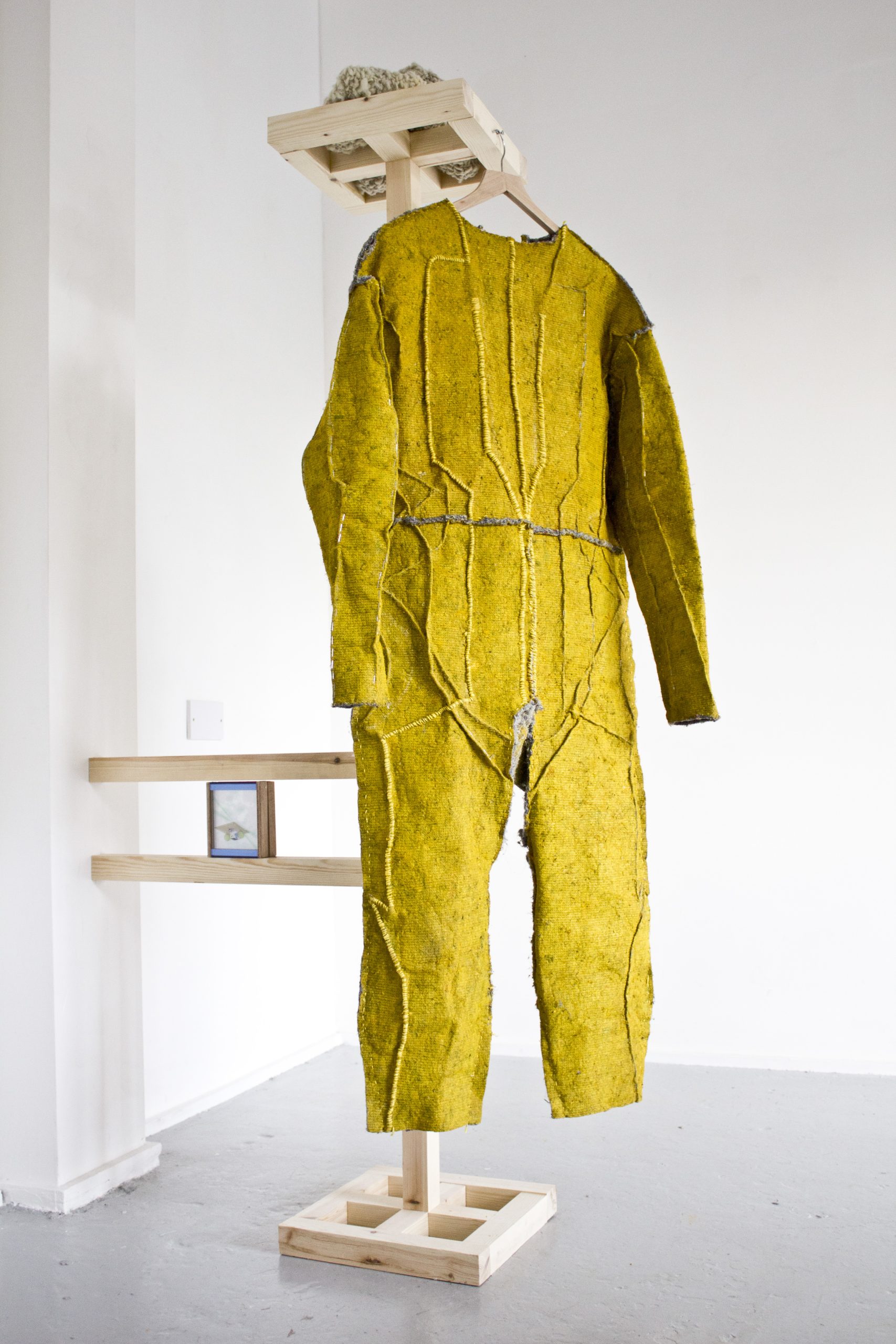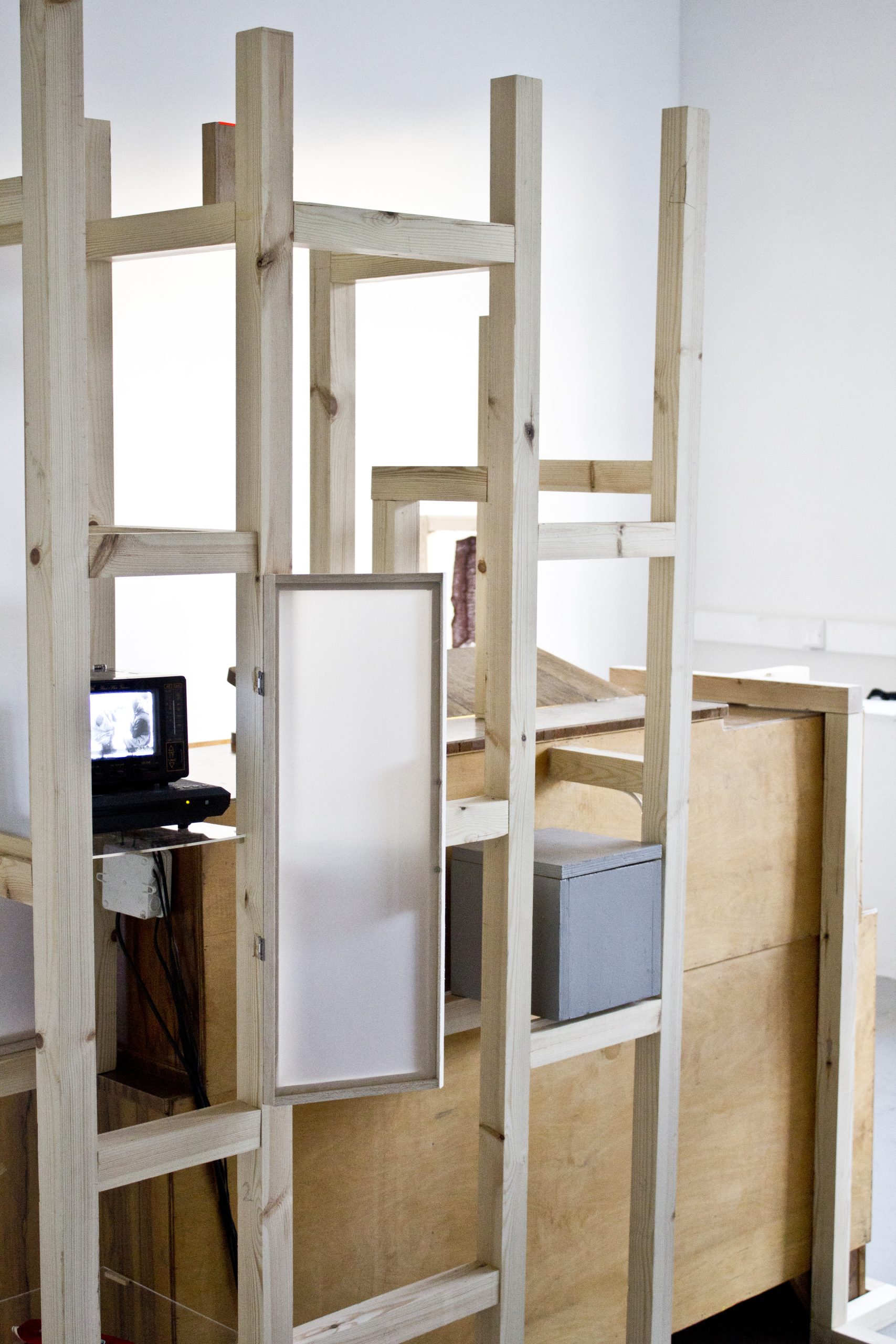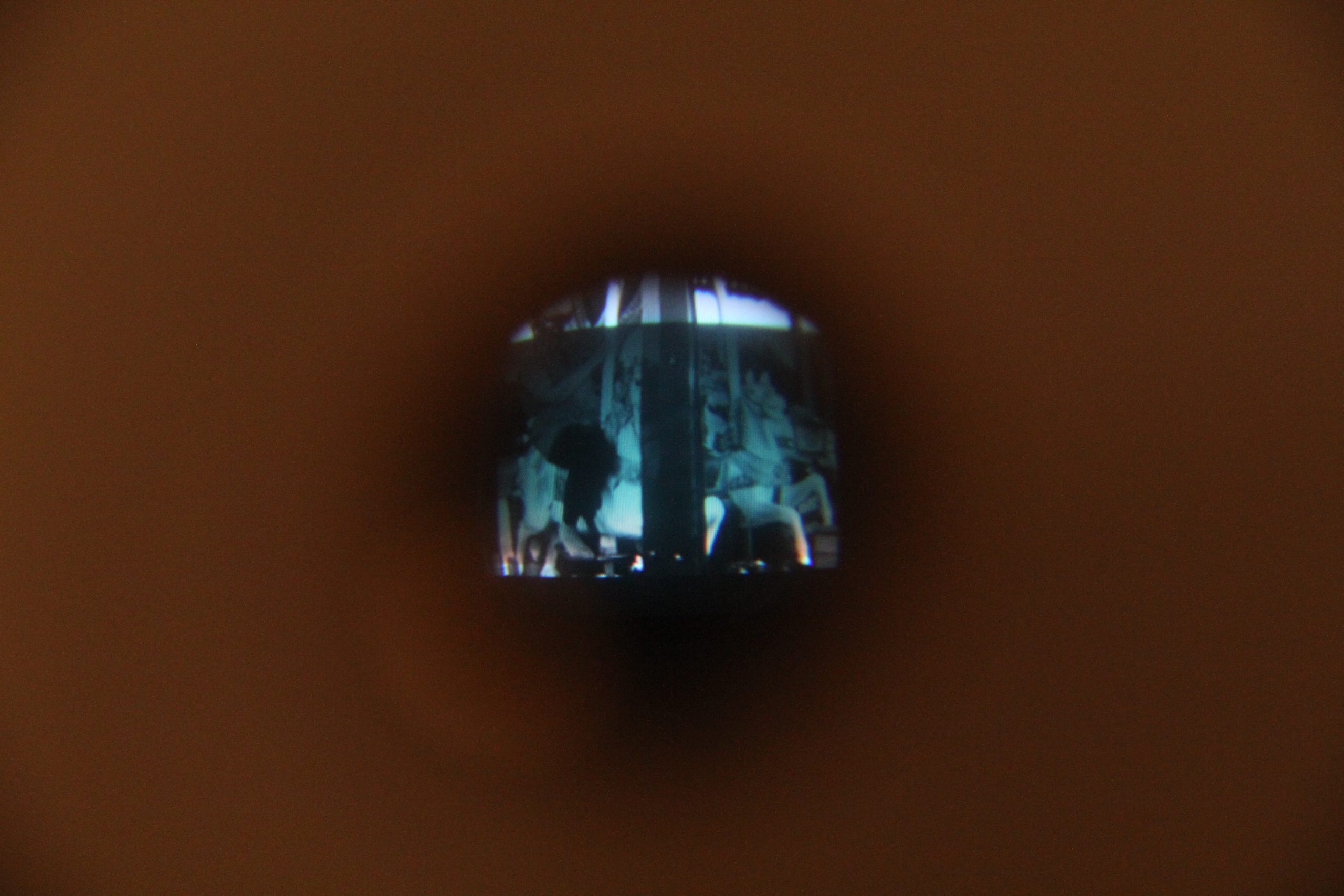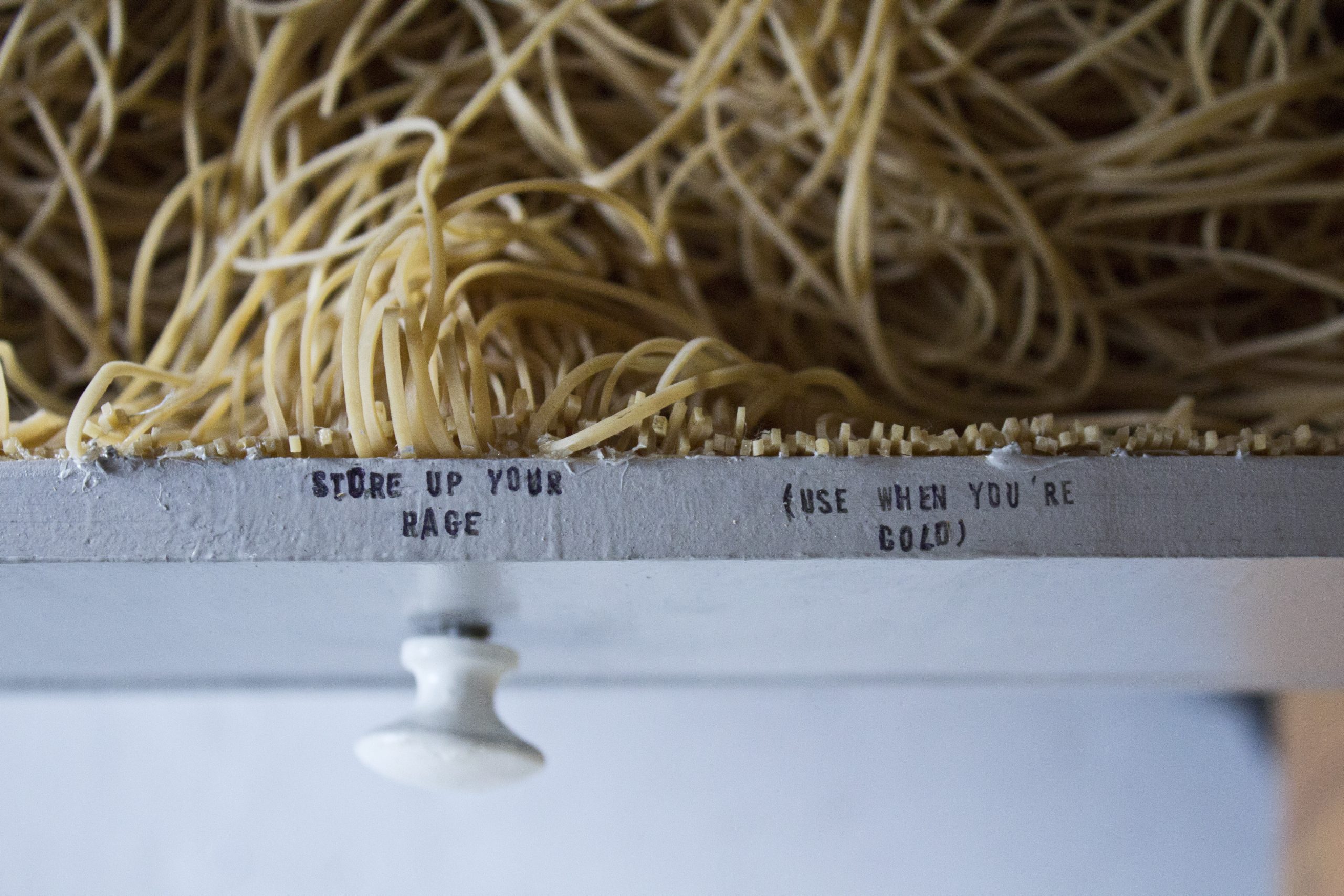Tomorrow I’ll be elsewhere
Curated by: Sonja Vrkatić and Noemi Niederhausen
November 2013, A Side B Side Gallery, London, UK
In the presence of works by:
Benjamin Renoux/ Jazz Reif/ Valentin Dommanget/ Roderick Laperdrix/ Majella Dowdican/ Katie Brightside/ Nikola Djordjevic/ Jovana Vasic / Charlotte Law / Jamie Lake/ Jennifer Niederhauser/ Lauren Franklin
Tomorrow I’ll be elsewhere, a collaborative project which is shaped through a dialogue between the artists and the curators, found its starting point in the interrogation around the establishment of modern museums and their predecessors such as the cabinet of curiosities and the private collections.
With the focus on the collection before the museum, the collection which is not structured through the scientific systematisation, and which does not lead to the production of the exact knowledge, this exhibition offers an approach to its reformulation in the contemporary context. The artefacts showed might not be related at the first glance but their relationship is established in the space between them; generating meaning through the appearance of intervals, tensions, analogies, contrasts or contradictions.
The possibility for the audience to take part in the exhibition’s display by moving the elements around, changing their disposition, dealing with their unfixed meaning in time and going through certain expedition or a search both symbolically and physically, reinforces the resistance to classification and interrogates the artifices employed to build one.
The display itself explores a constellation of artworks which carry a notion of timelessness, displacement familiarity but not exactness, with their
“when and where from” threatened or corrupted. The artworks shown include videos works sculptures, photography, and performances, developed by emerging artists, which offer a landscape of archetypes that are decipherable, yet decontextualised.
Tomorrow I I be elsewhere, produces an environment which creates a dialogue between the artworks, the narratives and the participants through the language of the collection and its reformulation; aiming to interrogate the possibilities of that dialogue outside of the certainty of the knowledge.
